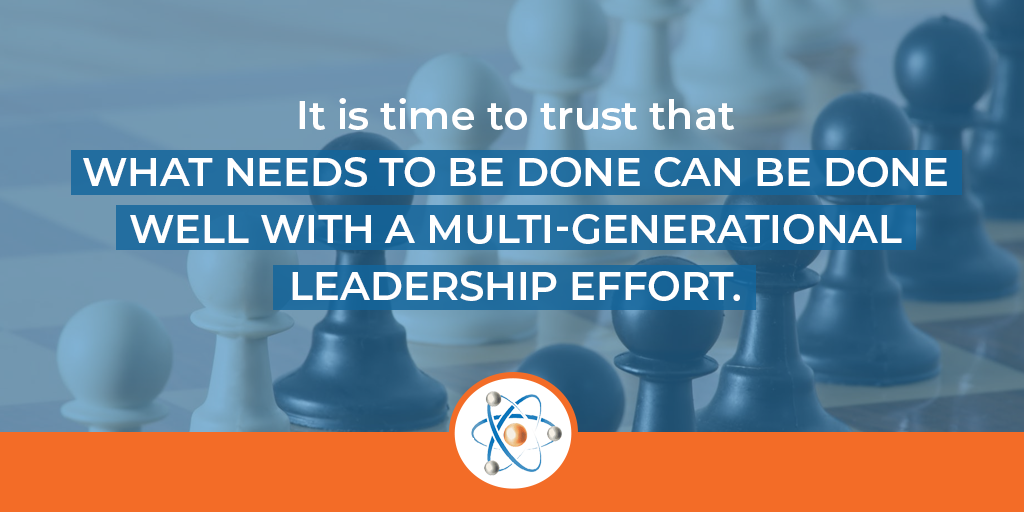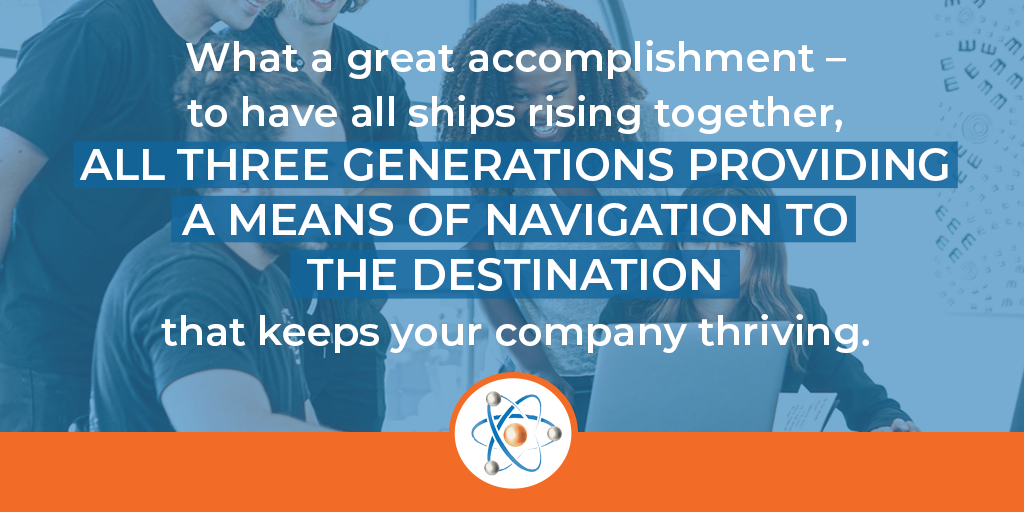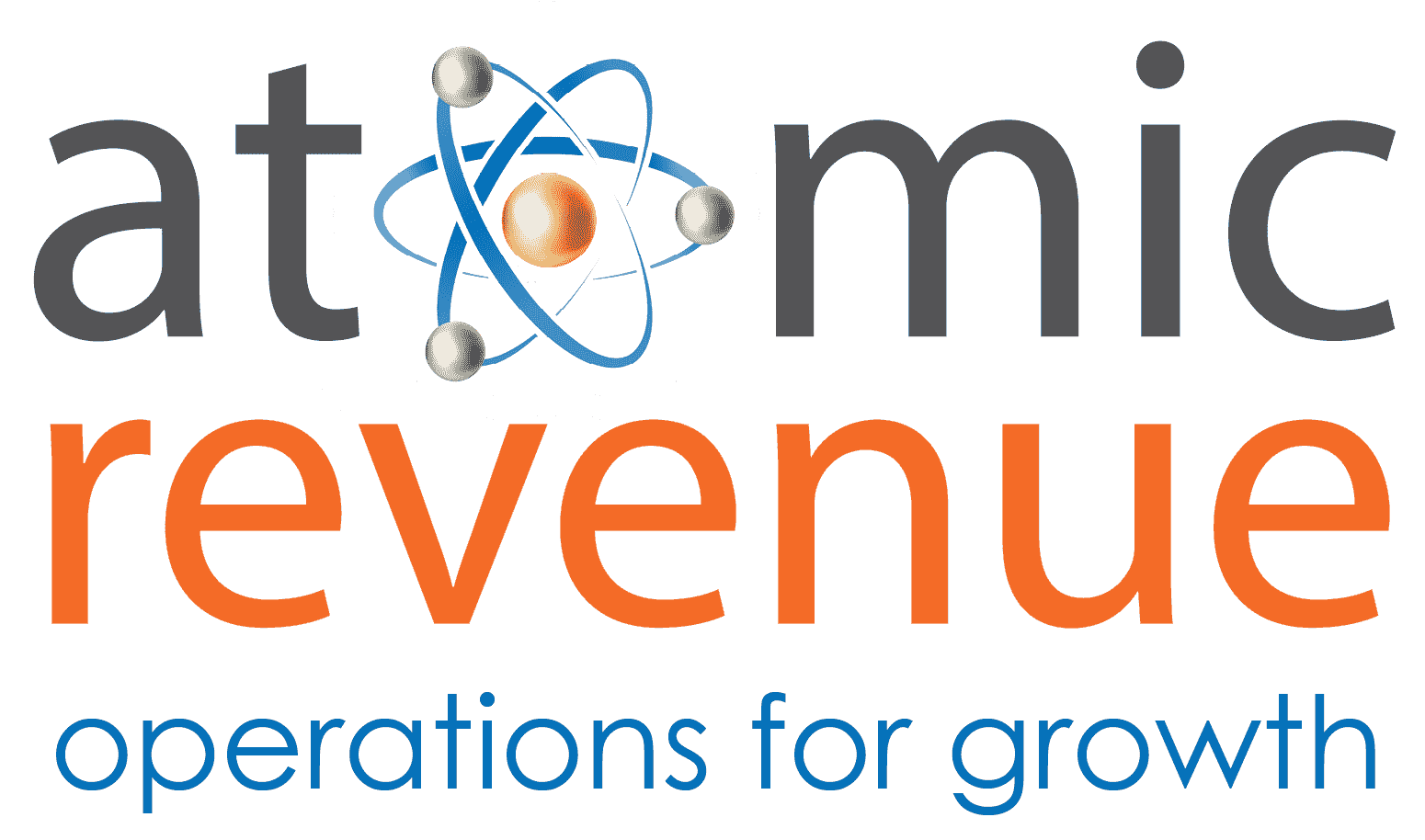When considering your leadership team, it’s important to reflect on your company’s values. What do your customers and employees value about your organization? Is your business model still relevant today? Will it be relevant to future generations?
While senior leaders, or "Baby Boomers," know the past and what got your company to where it is today, it’s your Millennial leaders who are especially comfortable with technology and have a vision for the workforce of your future. Gen X leaders have learned and evolved as they have worked through the most significant business transformations of the last two decades. The best leadership teams tap into the experience of all these generations to maximize growth and stability for your 21st Century business.
Improve Operational Efficiencies for Profitability
Your employees and your customers are trending toward Millennial (born 1977-1995), soon to be Gen Z (born 1996-now), so if you solely depend on company veterans as decision-makers, you could be missing out on major business opportunities. Think about operational efficiency, technology utilization, market transitions, product road maps, customer service, and other areas of business where broader perspectives could improve profitability. Leadership teams comprising all experienced working generations are necessary to achieve sustainability.

The importance of multi-generational leadership teams is less about age diversity and more about experience diversity. It is through experience that we become masters of our trades and talents, and it is experience that shapes our understanding of changes that impact business, people, and society.
Yes, Experience Matters – ALL Experience
Whether you have a 5, 15, 25, or 40-year career under your belt, that work experience directly influences your professional values, ideas, and contributions. Similarly, the first technology courses offered in school occurred during the education of Gen X (born 1965-1976), and technology continues to be increasingly influential on the educational experiences of Millennials and Gen Z, which is instrumental to the future of any business. These educational and professional perspectives help identify opportunities for improvement and guide recommendations for change. When a leadership team exclusively represents a single experience level ‒ Boomers, for example ‒ it can be much more difficult to fully understand the scope and impact of recommendations coming from a Millennial’s alternate experience perspective.
For example, a Millennial suggests an idea to improve workflow and operational processes within a large, established organization. The leadership team needs to evaluate the recommendation because it impacts a significant portion of the workforce and changes an established business process. Everyone on the leadership team is between the ages of 56-63 (Boomers) with no less than 15 years of industry experience. How difficult will it be for this leadership team to fully evaluate and trust that the change, which will be disruptive, will drive real value and improve profits?
On the other hand, a young company with only Millennial founders and leaders may be missing critical insights and fine-tuned expertise of more experienced generations. People who’ve been there, done that, and learned through the school of hard knocks can offer valuable perspectives that save time and money. Without a multi-generational team, you’ll fail to reap the countless benefits of lessons learned and collaborative ingenuity.
Regardless of the degree to which your unique business utilizes technology or capitalizes on innovation, all businesses are fundamentally the same underneath the public-facing exterior. No matter what business you’re in, you must do the same things to increase revenue and stay profitable – get qualified leads, convert them to customers, and create customer advocates. Utilizing the perspective and talents of all three experienced generations accomplishes these requirements while navigating today’s changes and creating tomorrow’s opportunities.
Let’s Be Honest – Boomers & Millennials Working Together?
Okay, Boomer. Okay, Millennial. Hear me out. It is not just a meme. Your mega-populace generations have very different approaches to work. As a matter of fact, you have very different experiences and values that drive your approach to life in general, which makes being in business together a difficult necessity. As Boomers are retiring from the companies they’ve built, Gen X and Millennials are taking over and shaping the future of these companies while driving the digital transformations on their own, without the support of leadership, which can be far more disruptive than collaborating with the experience and value of all generations working side-by-side.
Millennials need a voice at the leadership table now to speak up and provide the latest technological and sociological education and experience that the rest of us don't have. Gen X and Boomers have never lived in an exclusively technology-led world like the workforce and decision-makers of the future. Our businesses must adapt or become extinct.
Technology dependence and confidence creates a lot of stress between the Millennial work force and their Boomer leadership teams. Millennials have been raised on technology as an integral part of everything they do ‒ it drives their productivity, gives them access, and accelerates their decisions. In contrast, Boomers have been adapting to technologies at a rapid pace, some since the 1960s, but unlike Millennials, it has not been a life-long immersion. Millennials approach work technology-first and keep up with the lightening speed with which technologies are made obsolete and new technologies are born, while Boomers focus on what’s best for the company in all areas, aside from just technology.
At the same time, Millennials don't have the depth of experience to understand all the inner workings and operations of a company, nor the full breadth of the impact that technology will have on a company. Bringing an outdated company into the digital age is a transformation that’s akin to a double lung transplant. Necessary yet scary, disruptive but lifesaving. That begs the question – how do these two generations bridge this divide? With a little help from Gen X.
Gen-X – The Great Mediator
Although technology and a digital transformation are absolutely required for business success, neither Boomers or Millennials have ALL the information to guide and manage the transformation, though they both have very necessary information. So, what will bridge the gap between what's made you successful thus far and what's going to keep you successful in the future? Who will lead you into the future as more buyers and decision-makers are Millennials and your workforce fills with Generation Z? And, who understands the experience of going from no technology to full technology?
Generation X. No one really emphasizes Gen X in all the Boomer versus Millennial conversations. Gen X is the facilitator of digital transformation. This is my generation. We started our careers with Rolodex, bulky desktop monitors and floppy disks but we learned, taught, and implemented technology changes for businesses throughout our entire careers. It’s hard to even imagine how we got business done without cell phones, never mind the fact that we ushered our businesses from landline phones to VOIP and from no internet to mobile-responsive requirements. Gen Xers have not only lived through but worked through the technology business transformations of the past 20 years.
Now, as Millennials push tech advancements beyond anything Gen Xers could’ve expected, we can help leadership teams understand what they’re suggesting and why. We understand the way things were done pre-technology, what has had to transpire to grow business through those changes, and what must be cared for when implementing new technologies. Gen Xers can ease the pain of expanding digital operations and keep internal communications flowing as a critical connector in the multi-generation collaboration.
Multi-Generational Teams Drive Business Sustainability
When it comes to revenue-driving decisions, digital operations must facilitate not replace good, old-fashioned human-to-human methodologies, and there must be a unification and willingness to entertain diverse perspectives.

All leadership boards should include Millennials, Gen Xers, and Boomers to create the full vision, full operational integration, and full business model that strategically and deeply cares for the great things of the past, the transitions required for the future, and the systems and technologies that continue to change the way businesses operate and employees work.
Great things can happen when multi-generational leaders collaborate with each other on digital transformation, succession planning, and workplace culture that drives business sustainability. Gen Xers who have “been there, done that,” know that digital transitions must happen. They implement the transitions while keeping to the ideals of the Boomer founders and maximizing the value of Millennial innovations. A multi-generational leadership team creates a checks-and-balances system that evens the competitive playing field for maximum revenue growth and business value.

Atomic Revenue’s Multi-Gen Board of Managers
I'm very proud of our multi-generational Board of Managers. Every time we are in a meeting together, the diversity of perspectives lights a fire of optimism, opportunity, growth, and progress. It inspires the right changes to drive profitable growth and company culture. As a Gen-Xer, I could not be happier to be in the center of our multi-generational team bridging “what has always been true” with “what could become possible.” I am constantly amazed at the things our blended team can accomplish and how our Board of Managers is a unique differentiator in our industry.
Atomic Revenue focuses on preparing our company and our clients for the future, identifying opportunities to understand changing market dynamics and capitalizing on technology to improve efficiency and work environments. We are uniquely positioned to help you harness the power of time-tested business principles with transformative revenue production technologies that drive profitability using smart modernization choices, while caring for all the dynamics. If you’re interested in learning how you can increase revenue with your own multi-generational leadership team and technological efficiencies, sign up for a free revenue operations assessment today.
 About the Author
About the Author
Tara is the Founder and CEO of Atomic Revenue, where she continues to problem-solve, innovate, and define the formula for and establish the discipline of Revenue Operations that launches client growth with stronger foundations and better ROI. As the company's EOS® Visionary, it is her passion to share what she has learned over the course of her career and help other business owners and leaders increase revenue and grow with consistency. She is also a renowned, national speaker.





